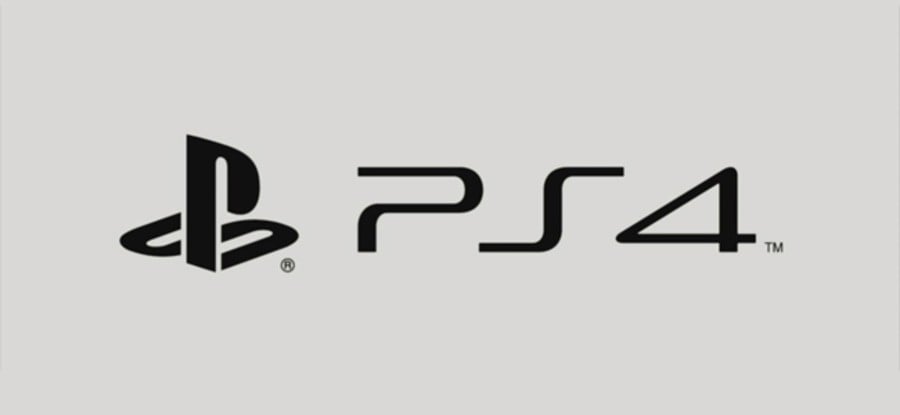
We love our good old pal the PlayStation 3, but even we can acknowledge that the console is not without fault. Its complex architecture has proved a headache for developers ever since its release almost seven years ago – and it's resulted in some less than desirable ports being published for our favourite machine. But with the more accommodating PlayStation 4 lurking on the horizon, the gripes that we've become accustomed to over the years are on their way out.
Prior to last month's PlayStation Meeting, many correctly predicted that the impending system would actually resemble a high-end gaming PC. That's exactly what system architect Mark Cerny presented, promising an end to the PS3's complex architecture, in favour of a more traditional design. This will allow developers to produce content for the machine much more easily, while the powerful hardware buried deep within the system's currently invisible chassis will once again drive visual innovation forward.

Over the course of the current generation, we've seen a massive leap in both the scale of games, and the ambition of developers. Such aspects will be given the opportunity to evolve all over again with the introduction of new hardware – a welcome asset, seeing as the current generation has struggled to match the aspirations of some studios.
Indeed, as games have started to require more from the PS3, its limitations have become increasingly clear. While first-party studios such as Naughty Dog and Sony Santa Monica have been able to make Sony's third home console sing and dance multiple times, it hasn't always been quite as easy for third-party developers. When it comes to technical performance, one of the console's biggest flaws has been its stunted amount of RAM. This lack of memory has led to numerous titles running poorly on the manufacturer's machine, with issues such as long load times, frame-rate drops, and, worst of all, hard locks, rearing their ugly heads.

Many of the aforementioned issues can be best observed in Bethesda Game Studios' various PS3 releases. Gamers were understandably outraged with The Elder Scrolls V: Skyrim back when it launched in 2011, prompting slews of vicious remarks due to its tragic performance on Sony's system. But although the title's outdated engine was at the very heart of the controversy, the awkward architecture of the PS3 itself did nothing to alleviate the problem.
And this brings us nicely to the upcoming PS4. Sony's next generation console not only boasts a much more accessible development environment, but also a rather attractive 8GB GDDR5 RAM – an attribute often associated with high-end PCs. With that in mind, the console should see many of the PS3's faults fade away. The impending system will be able to handle much more intensive scenarios than its predecessor, allowing further chaos to unfold on your television screen. More enemies, smarter artificial intelligence, and better visual effects – almost every aspect of gameplay will be enhanced due to the console's increased processing power and the freedom that comes with a far larger pool of memory.

Things that we've grown to accept will soon become a relic of the past with the PS4. Developers will now have the appropriate horsepower to realise their visions, and the less complex architecture will ultimately allow studios to spend more time polishing their titles rather than getting them up and running. And that means that we'll be able to enjoy better games, without needing to worry about whether they'll actually work as intended.
Is there any particular technical gripe that you'll be glad to see the back of on the PS4? What improvements are you most looking forward to? Let us know in the comments section below.





Comments 19
I just hope I can set my status to offline.
It sounds as if the whole system has been designed around input from developers, from the hardware to the development software. If there are any grumbles from devs, they'll have to point the finger at themselves. No "Sony should have..." excuses this time.
I wonder how much will it cost their new could gameing service and what's going to happen to Playstation Plus when the PS4 comes out?
@Epic The amount of promotion it's getting, I'm sure it'll be sticking around. I still think that you're going to have to pay for some of the console's social features. I doubt they're going to let you stream your gameplay for free, for example.
The PS4 is in the honeymoon phase at the moment, but there will be negative stories that come out before its release. I think that's one people should prepare themselves for.
I hope they keep a lot of the stuff they showed off free. Then maybe they could put extra features and stuff in for extra $. It would help them against Microsoft to have their free online outclass microsoft's.
I insist that there should be a chatroom to discuss all this kind of topics.
NL has one why we can't have one?
My biggest issue with PS3 is that, for whatever reason, when I played I am usually hit with a useless system or game update that takes a lot of time to finish. A friend of mine waited 7 hours of updates before playing GT5. They said that this will stop. Sometimes I miss the days then I opened the Gameboy and played after 5 seconds. I also miss the time when the games were properly beta tested.
As far as computational architecture is concerned I sometimes don't like losing the console architecture in favour of a PC one. I wonder how Vita is both developer friendly and both PS3 porting friendly.
PSPlus is sure to stay, they will just add PS4 support al launch (unlike what they did with the Vita).
With ps3 these are my biggest issues
1) can't update a lot of stuff in the background
2) Can't upgrade a sun account to a master account
But other than that I've enjoyed the ps3 a lot
@get2sammyb , Not so sure about that. With all the negative rumors circulating around the Xbox 720, it's gonna make PS4 look Heaven sent.
@Jaz007
I know, I hope ps plus isnt required for all of the new stuff, their main aspect for this (besides upgraded hardware) is the social aspect
My only concern with the PS4 now is their browser. I'm really hoping Sony has a decent browser this time around. The PS3's browser was horrendous of gigantic proportions. The browser was literally unusable. I got my fingers crossed for a better one.
@ajay708 Yeah, Sony has always enjoyed a good partnership with Google, so I've no idea why they don't put Chrome on there. Surely both parties could happen upon a reasonable arrangement.
@get2sammyb , If the PS4 used Chrome I would be sold no questions asked. I'm already sold but that would be the icing on the cake. To be honest that would be the smart strategic thing to do. You gotta think Microsoft is gonna use Xbox 720 as a selling chip for Windows 8 and internet explorer, Chrome on PS4 would be a real kick in the balls.
@ajay708 I had no problems with the PS3's browser, but I agree that it could be better.
My biggest gripe has been using the Move w/ the XMB. It sucks. Hopefully having that little colored light on the DS4 and a Eye in every box means the XMB will be replaced w/ something more Win 3.1 like.
From a hardware perspective, going back to an x86 environment that developers understand and 8GB memory are the 2 best decisions Sony has made.
From a features perspective, I am reserving all judgement until I find out more about the OS.
@belmont rofl I did that yesterday for about 4 hours. But that's not necessarily the systems fault. It is bs to have to sit there all day tho
I don't own a PS3, but the biggest improvement Sony came up with during their PS4 presentation is their change of attitude. I was severly put of by Sonys arrogance back then around the PS3s launch. "It's gonna be expensive, we're not gonna be offering it at a price targeted at households, we want the people to work more to be able to afford one." and "We're Sony...we're gonna sell 3 million units regardles of the games available at launch." were both comments that I hated...didn't want to give my money to a company displaying such arrogance. Then the 360 launched first and so I went with that and never regretted it.
Lately however, I got the feeling that M$ lost the focus of what XBox used to be for me...a device for great games. I don't care for Videostreaming or Xbox Music or such...and I totally hate the add-infested Dashboard the 360 has become.
I like a lot what I've seen from Sony so far...the PS4 seems to be a beast and Sony seems to be all about great games again...and they show a much humbler attitude. I loved my PS1 and PS2 and adding the #dealwithit debacle, I think I'm gonna jump ship again and go Sony during the next gen.
Aside from the powerful hardware, the goal to make all those updates in the background or in a low power mode is the nicest feature for me.
Sorry for the long post.
Regarding web browsers... of course, there's a chance that PS4 may not have one at all. Like CD playback, it's not something I'd miss, simply because they're awkward to use via a console interface.
That said, it's x86 based, so there's presumably no reason that Google couldn't release a Chrome app for it on their own, regardless of what Sony offer (or don't) on the browser front.
Tap here to load 19 comments
Leave A Comment
Hold on there, you need to login to post a comment...